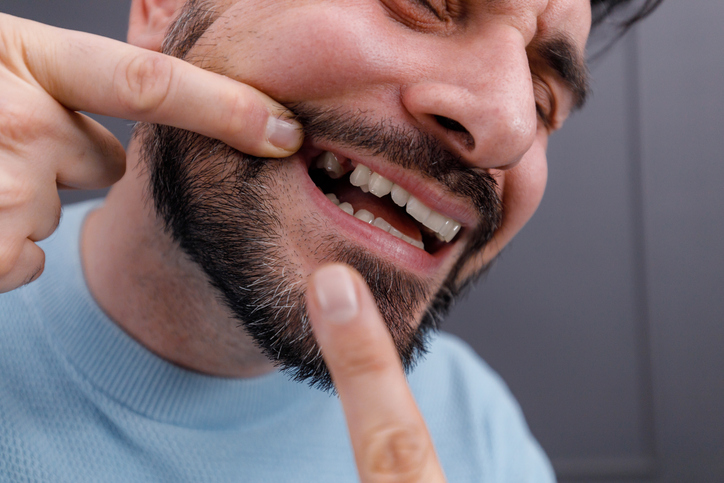
Tooth loss can affect people at any stage of life. Losing even a single tooth may set off a range of complications that impact oral health, confidence, and general well-being. At Periodontal Associates of Memphis, our periodontists—Dr. Mitchel S. Godat, Dr. Grant T. King, and Dr. Olga Byakina—see firsthand how missing teeth can influence daily life. Here, we discuss key problems linked to tooth loss and how timely care can help.
1. Bone Loss and Deterioration
Natural tooth roots stimulate the jawbone during chewing. When a tooth is lost, the bone may begin to resorb. This can lead to:
- A sunken facial appearance
- Weakened support for surrounding teeth
- Greater difficulty placing restorations like implants
Dental implants help mitigate bone loss by using a post that integrates with the jaw and preserves bone density.
2. Shifting and Alignment Issues
A missing tooth can prompt adjacent teeth to drift into the gap, causing:
- Crowded or misaligned teeth
- Changes in bite that may strain the jaw
- Hard-to-clean areas prone to decay
Replacing the lost tooth—whether with an implant, bridge, or partial—helps maintain proper alignment.
3. Difficulty Chewing and Speaking
Teeth are essential for chewing and for forming certain sounds. Missing teeth can lead to:
- Less efficient chewing
- Excessive strain on remaining teeth
- Speech challenges, such as lisping
By restoring lost teeth, you can enjoy a broader diet and speak more confidently.
4. Higher Risk of Gum Disease
Gum disease is a common cause of tooth loss and can worsen when a tooth is missing. The empty socket may trap debris and boost bacterial growth, which can result in:
- Inflamed, tender gums
- Accelerated plaque buildup
- Spread of infection to other areas
Early periodontal treatment—including scaling and root planing—helps preserve the health of surrounding tissues.
5. Changes in Facial Appearance and Self-Confidence
Teeth support the cheeks and lips. Losing them may cause:
- Hollowed or aged features
- Wrinkles near the mouth
- A decline in self-esteem
Replacing missing teeth restores facial contours and can improve confidence in personal and professional settings.
6. Effects on Overall Health
Inadequate chewing can limit nutritional choices and potentially affect digestion. Chronic inflammation from gum disease has also been linked with systemic issues like heart disease and diabetes. Maintaining a full set of functioning teeth promotes better overall health.
7. Emotional and Psychological Impacts
Many individuals feel embarrassed by gaps in their smile, which can lead to social withdrawal or anxiety. Addressing missing teeth often improves self-image and daily comfort, enabling people to engage fully in work or social activities without worry.
Why Early Intervention Matters
Promptly replacing a lost tooth can halt a chain reaction of complications. When tooth loss is due to trauma, decay, or advanced gum disease, swift action can preserve remaining bone and prevent teeth from shifting. Postponing treatment might require more extensive procedures, such as bone grafting or orthodontic correction, later on.
Treatment Options
At Periodontal Associates of Memphis, our goal is to provide individualized care:
- Dental Implants: A stable, long-term approach that mimics the structure and function of natural teeth.
- Bone Grafting: For patients with jawbone loss, grafting can rebuild enough density to secure an implant.
- Bridges or Removable Partials: These traditional restorations fill gaps but don’t preserve bone the way implants do.
- Periodontal Therapies: Deep cleanings and other specialized treatments address gum disease, a leading contributor to tooth loss.
- Ongoing Maintenance: Regular checkups help catch minor issues before they escalate.
Preventing Tooth Loss
Although modern dentistry can replace missing teeth, prevention is still ideal. Daily brushing and flossing, paired with routine professional cleanings, forms the foundation for lasting oral health. Recognizing early symptoms of gum disease—such as bleeding or discomfort—lets you act before a tooth is at serious risk. Our practice emphasizes preserving natural teeth whenever possible.
Empowering Patients Through Education
Understanding the link between gum health, bone preservation, and overall wellness is key. Our periodontists explain each diagnosis and treatment so you can select the best option. With the right knowledge, you can make informed decisions that benefit your smile for the long term.
Further Considerations for Maintaining Oral Health
Beyond restoration and daily hygiene, lifestyle choices can also affect your risk of tooth loss. For example, smoking or using tobacco products elevates the likelihood of gum disease. Poor nutrition or unmanaged chronic conditions like diabetes may contribute to a higher risk of complications. By adopting healthier habits and working with specialists to manage underlying medical concerns, you can enhance treatment outcomes and protect your teeth.
Enhancing Your Future Smile
When you address tooth loss early, you create a foundation for a healthier, more durable smile. Embracing preventive strategies, such as frequent periodontal evaluations and timely interventions, can halt the progression of gum disease and reduce the likelihood of additional tooth loss. Furthermore, choosing restorative solutions that replicate natural function—like dental implants—helps maintain proper jaw support, allowing you to chew, speak, and smile with ease. By incorporating consistent follow-up care and a dedicated oral hygiene routine, you can preserve the vitality of your teeth and gums for years ahead, boosting both your health and confidence. A complete smile improves wellness.
Your Path Forward to a Healthier, More Confident Smile
Tooth loss can create a domino effect, from bone deterioration and misalignment to difficulties with speech and reduced self-esteem. However, these challenges don’t have to define your future. By seeking expert care and committing to preventive measures, you can maintain a strong, healthy smile that supports your confidence and quality of life.
If you’re missing a tooth—or trying to avoid tooth loss—timely professional advice is essential. Through consistent at-home care, regular exams, and state-of-the-art procedures, you can protect existing teeth and enjoy a fully functional smile. At Periodontal Associates of Memphis, we’re dedicated to helping patients overcome the hurdles of tooth loss and regain confidence. With the right approach and ongoing support, you can preserve your oral health for years to come.
